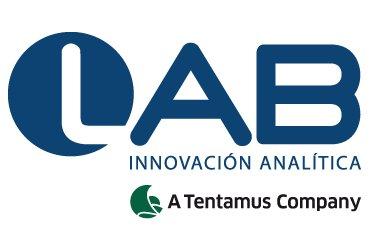Mª Elena Hernández (Technical Director and Manager of LAB) and Rosario Santiago (Head of the Chromatography Department), give an account of the strong commitment of the laboratory to the cosmetics sector, the methods developed to date and its expansion plans.
Q. Most of LAB’s analytical services are focused on the food, agriculture and environmental sector, a sector with high demand in Almeria and in Andalusia in general. Why the cosmetics sector?
A. Mª Elena Hernández: Headquartered in Almería, with a branch office in Huelva (a strategic location to cover the demand in the red fruit sector), our sales network covers the entire national territory. In addition, as we are part of the Tentamus Group, we also work internationally, collaborating with other laboratories of the Group.
In fact, the development of the new method in the cosmetics sector was inspired by the request of an international customer. We were very excited to meet this demand, to implement the new method in the laboratory and to offer it to our customers eventually (national and international).
Q. What are the main methods of analysis that have been carried out since then in this sector? What technology does the laboratory use to ensure the reliability of the results?
A. Rosario Santiago: Methylchlorothiazolinone (MCI) and methylisothiazolinone (MI) are heterocyclic compounds used as preservatives in cosmetics and industrial products with biocidal activity.
The laboratory has established a new chromatographic method using cutting-edge UPLC-MS/MS (liquid chromatography coupled to triple quadrupole mass spectrometry) to detect and quantify these substances.
This sophisticated equipment has allowed us to develop a chromatographic method with a limit of quantification* of 0.5 mg/kg and a limit of detection** of 0.05 mg/kg. Undoubtedly, a very sensitive method! What’s more, sample handling is reduced to a minimum.
Q. What are the main risks of the use of these ‚preservatives‘ for consumer health?
A. Rosario Santiago: The abuse of these substances in cosmetic products (gels, shampoos, creams…) can cause skin sensitization and cause allergic dermatological diseases, such as contact eczema.
Their presence in cosmetics is studied and regulated because they are considered to cause allergic reactions in about two to four percent of patients undergoing epicutaneous tests. These preservatives can be found in wet wipes (make-up remover wipes, baby wipes, intimate hygiene wipes, toiletries, etc.), hand soaps, shampoos, moisturizers, hand creams, cleaning products (dishwashers, glass ceramic cleaners), paints, varnishes and many more. Even if there is no allergic reaction, it may develop over time by continuous use of these products.
The European Commission banned the use of these compounds in non-rinse products such as body creams in 2015. At LAB we focus on EU Regulation (EC) No 1223/2009, which guarantees consumer safety in the use of this type of product.
Q. Obviously LAB is very open to the development of new methods linked to the cosmetics sector? How about other areas?
A. Rosario Santiago: LAB has always been working very closely with clients in the development of R&D projects. We are passionate about challenges and our capacity to develop multiple chromatographic methods to meet our clients’ demand is definitely not limited to the cosmetic sector but extendible to other areas of interest.
We are very proud to have developed and implemented this new method which will lead to the expansion of the laboratory into a new market area.
Q. LAB is a laboratory that has grown both in terms of human resources and scope of analytical services since its creation in 2003. How does your vision for LAB’s future look like?
A. Mª Elena Hernández: We will further consolidate LAB as reference laboratory in organic contaminant analysis and analysis of environmental and agro-food samples both at national as well as international level.
Furthermore, LAB’s objective is striving to open new lines of business by developing new methods in the sectors in which we currently work and additionally in further sectors, tailored to the demand of our clients.
*Limit of quantification: minimum quantity of a component present in the sample that can be quantified under the experimental conditions described for that method, with adequate accuracy and precision.
**Detection limit: refers to the minimum amount/concentration of a substance that can be reliably detected by a given analytical method.
Tentamus Group GmbH was founded in 2011. Tentamus is a global product and safety group with a core presence in Europe, UK, Israel, China and the USA. Accredited and licensed Tentamus Group tests, audits and consults on all products involving the human body (food & feed, pharmaceuticals & medical, agrochemicals, cosmetics, agriculture & environment and nutraceutical & supplements). Tentamus Group is represented in over 35 locations worldwide. More than 1,600 highly-trained staff members work in over 1 million square feet of laboratory and office spaces. For further information please visit www.tentamus.com.
www.tentamus.com
Tentamus Group GmbH
An der Industriebahn 26
13088 Berlin
Telefon: +49 (30) 206038-230
Telefax: +49 (30) 206038-190
http://www.tentamus.com
Marketing Manager LAB
Telefon: +34 (607) 031285
E-Mail: irene.forteza@tentamus.com
![]()
